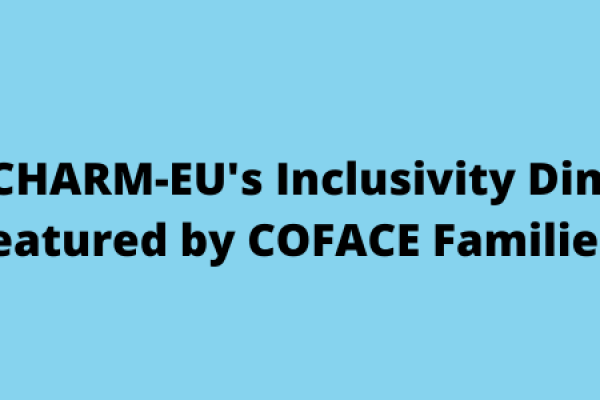CHARM-EU’s inclusion dimension has been showcased in COFACE Families Europe’s latest report.

COFACE Families Europe (link: https://coface-eu.org/), a European network of civil society associations representing the interests of families (all types, without discrimination)[1], has published a media release for the International Day of Persons with Disabilities in Brussels on the 3rd of December 2021.
In their report they highlighted 45 already existing practices across Europe that boost the shift towards fully inclusive societies. The selected initiatives reflected the so-called „S.H.I.F.T. principles”: Support, Human Rights, Independence, Families, and Social Transition.
As inclusion is one of the core aspects of CHARM-EU, the Alliance was featured mentioned as a European best practice of inclusivity in COFACE’s latest report. They stated:
“CHARM-EU is committed to promoting inclusive teaching and learning environments, access and participation of students and staff with various backgrounds, own lived experiences, and access needs in all aspects of higher education. Inclusion and diversity have been profoundly interwoven into the DNA of CHARM-EU.”
They highlighted that CHARM-EU contributes to the S.H.I.F.T. principles in many ways, such as creating an inclusive teaching and learning environment, providing resources on inclusion, ensuring digital accessibility etc. Furthermore, the report also places the Alliance’s work on inclusivity in the context of the United Nations and the European Union.
For more information, please visit the following link: https://coface-eu.org/new-report-shedding-light-on-the-s-h-i-f-t-towards-meaningful-inclusion-in-europe/
[1] https://coface-eu.org/new-report-shedding-light-on-the-s-h-i-f-t-towards-meaningful-inclusion-in-europe/